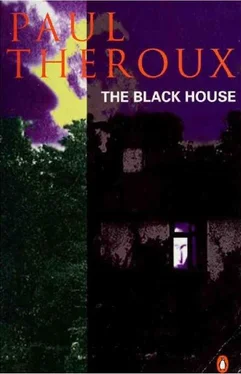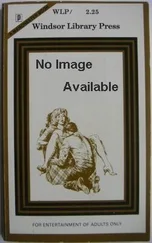Paul Theroux - The Black House
Здесь есть возможность читать онлайн «Paul Theroux - The Black House» весь текст электронной книги совершенно бесплатно (целиком полную версию без сокращений). В некоторых случаях можно слушать аудио, скачать через торрент в формате fb2 и присутствует краткое содержание. Год выпуска: 1996, Издательство: Penguin Books, Жанр: Современная проза, на английском языке. Описание произведения, (предисловие) а так же отзывы посетителей доступны на портале библиотеки ЛибКат.
- Название:The Black House
- Автор:
- Издательство:Penguin Books
- Жанр:
- Год:1996
- ISBN:нет данных
- Рейтинг книги:4 / 5. Голосов: 1
-
Избранное:Добавить в избранное
- Отзывы:
-
Ваша оценка:
- 80
- 1
- 2
- 3
- 4
- 5
The Black House: краткое содержание, описание и аннотация
Предлагаем к чтению аннотацию, описание, краткое содержание или предисловие (зависит от того, что написал сам автор книги «The Black House»). Если вы не нашли необходимую информацию о книге — напишите в комментариях, мы постараемся отыскать её.
The Black House — читать онлайн бесплатно полную книгу (весь текст) целиком
Ниже представлен текст книги, разбитый по страницам. Система сохранения места последней прочитанной страницы, позволяет с удобством читать онлайн бесплатно книгу «The Black House», без необходимости каждый раз заново искать на чём Вы остановились. Поставьте закладку, и сможете в любой момент перейти на страницу, на которой закончили чтение.
Интервал:
Закладка:
“I bred them,” said Caroline. “Alsatians—beautiful creatures.”
“That must have been a lot of work,” said Emma.
“I had help. Mr. Awdry found me a wonderful chap,” said Caroline. “Local. But awfully sweet.”
“Was it Hosmer, by any chance?” asked Munday.
“Why yes, but how did you know that?”
“I see him at The Yew Tree from time to time,” said Munday.
“You’re very brave,” said Emma. “It must be hard for a widow here.”
“It can be,” said Caroline. “But the day after my husband died, I overslept. I hadn’t done that for years. Perhaps that tells you something about our marriage.” At that moment the lights went out. “Power cut,” said Emma. But it had been announced as a possibility, and they were prepared for it. There were candles on the window sill. “Just a moment,” said Munday. He struck a match, but in the spurt of flame he saw the rigid corpses of two dogs, their skin peeled off, their white muscles showing a thin foam of decay. And another, more vivid image, his dagger in the throat of the foxhound. Munday found the candles and brought them to the table. The conversation continued, but in candlelight, with their faces half-hidden and their bodies in shadow, it was more confidential, with an intensity that the harshly-lit room had restrained.
“They whisper about me,” said Caroline into her fiery sherbet.
“Who does?” asked Emma.
“The locals,” said Caroline. “You must have heard the talk. They say terrible things about me. They tell stories.”
“I’ve heard nothing,” said Emma.
“What sort of stories?” asked Munday.
“Oh, you know the kind of thing,” said Caroline.
She paused. The bones and hollows in her face were set off by shadows; her eyes held two candle flames. She finally said, “I didn’t give up my dogs—they were stolen. One morning I went to the kennel and they were gone. It’s dreadful when something you care about disappears—you can’t help thinking you’re next.”
“It is dreadful,” said Emma. “That makes me angry.” She was breathing hard with her mouth shut. She said, “They talk about us, too.”
“Do they?”
“They object to our visitors,” said Emma.
Caroline said, “They can be very cruel.”
Munday said, “In Africa—”
But Emma had leaned forward and was saying, “We don’t intend to stay here.” Her panting made the candle flame dance near her face.
“That’s not true,” said Munday.
“It is!”
“Why not?” Caroline put the question to Emma.
“We’re just renting this house—it’s not permanent. I’ve never liked it here, and I don’t want to stay.” Munday said, “We haven’t made any firm decision. We haven’t even discussed it.”
“I’ve made up my mind,” said Emma. “This house! At first I thought it was England, everything I’ve always disliked about England I found here—the damp, the cold, the shabbiness. That awful trap that appalled me even when I was a girl. So I thought it was me. But it wasn’t. No, it’s something else, something much worse. There are rooms in this house that Mrs. Branch refused to clean—I’ve seen things! Alfred laughs, but it’s so terrifying for me sometimes. You have no idea.”
“Calm yourself,” said Munday. “I love this house.”
“I can’t help it,” said Emma. She blinked and started again, “This house—”
“You’ll have to forgive Emma,” said Munday. “She’s not well.”
“No,” said Caroline. She looked at Emma as an adult at a child quieted by terror; Emma was very pale and small—she might have been stunned by a slap in the face. “I know what you mean,” said Caroline. “My house is no better. I’m alone, and when you’re alone in a room even a toast rack can look like an instrument of torture.”
“I’m often alone,” said Emma. “Alfred doesn’t know.”
“She paints,” said Munday. “And there’s the garden. Emma’s always had green fingers.”
“A crack in the wall or a mirror—even that can look very threatening,” said Caroline. “And the furniture seems to sit in judgment upon you.”
“Yes,” said Emma eagerly. “Yes, that’s exactly how I’ve felt.”
“And the noises,” said Caroline.
“The noises!” said Emma. “It’s worse during the day, much worse when the sun is shining, as if you’re being mocked by the light. That’s so sinister.”
“My house is empty,” said Caroline. “I shall go back there tonight and turn on all the lights. Do you know how it is, entering an empty house?”
“I do,” said Emma. “It’s the feeling I had when we came here, and it has never left me, not for a single moment! It doesn’t bother Alfred at all.”
“I don’t see why it should,” said Munday, but he had known the fear, and Emma’s outburst had reminded him of how keenly he had felt it.
“But it would be better if you did,” Emma said. “Then you’d know how I felt it, as Caroline does.” Munday was struck by how easily this first time Emma said his lover’s name.
“It just occurred to me,” said Caroline. She touched at her throat with misgiving.
“What’s wrong?” said Munday.
“I won’t be able to turn on the lights tonight. The house will be dark. These damned power cuts!”
“What a shame,” said Emma. “You see, I know just what’s going through your mind. It’s late, it’s dark— do you have very far to go?”
“I’ll see you home,” said Munday. “If it’ll make you feel any better.”
“That’s awfully kind of you,” said Caroline.
Munday tried to find an emotion in her eyes, but he could not see past the candle flames flickering there, two narrow blossoms of light that gave her cat’s eyes.
“Yes,” said Emma. Her face fell. “Then I’ll be here alone.”
“I won’t be long,” said Munday. He had visualized something like this happening, though he had not guessed that Caroline and Emma would get on so well. The darkness helped, and seeing them together he had become aware of their similarities: Caroline wasn’t glamorous, nor was Emma so plain. They both had strengths he needed and an attraction he valued. But he knew he would have to choose; it was the worst of love, the excluding choice, and he had delayed it for too long.
“It’s selfish of me,” said Emma.
“Not at all,” said Caroline.
“I wish there were something we could do,” said Munday.
“But there is!” said Emma. She turned to Caroline. “Why not sleep here—stay the night?”
“I couldn’t,” said Caroline.
“It’s no trouble. We have masses of room. That’s what people do in the country, the way I imagined it. I can lend you a nightdress.”
“Emma—”
“See to the coffee, Alfred.”
“I really could go straight home on my own,” said Caroline.
“But there’s no one there,” said Emma. “You’re not expected.”
“No,” said Caroline. “That’s quite true.”
“I want you to stay.”
“You’re sure?”
“Absolutely,” said Emma. “Do it for my sake. So it’s settled. Now, take this candle and go into the other room, and we’ll bring in the coffee.” Caroline left the room, carrying the candle. The light wavered, a liquid glimmering on the walls, as she glided down the passage.
“I’m glad she’s staying,” said Emma. “I feel I’ve been so unfair to her. I don’t like to think of the things I’ve said about her.”
“I’ll put some wood on the fire,” said Munday.
“Such a sad woman,” said Emma. “Be kind to her, Alfred.”
19
Caroline was crouched on the sofa, her knees tucked beneath her. She hugged a cushion to her stomach and said, “I like her. Perhaps that’s the reason I stayed.”
Читать дальшеИнтервал:
Закладка:
Похожие книги на «The Black House»
Представляем Вашему вниманию похожие книги на «The Black House» списком для выбора. Мы отобрали схожую по названию и смыслу литературу в надежде предоставить читателям больше вариантов отыскать новые, интересные, ещё непрочитанные произведения.
Обсуждение, отзывы о книге «The Black House» и просто собственные мнения читателей. Оставьте ваши комментарии, напишите, что Вы думаете о произведении, его смысле или главных героях. Укажите что конкретно понравилось, а что нет, и почему Вы так считаете.












